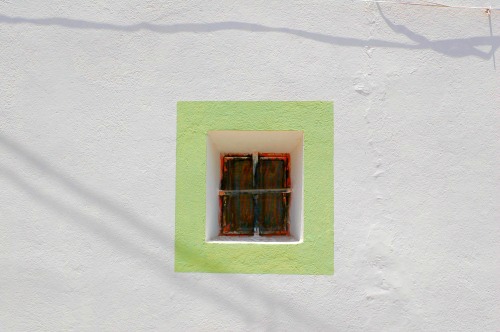 They look at us as one thing or the other. We are eight transsexuals seated at a long table in the middle of a busy Outback Steakhouse carving up our steaks, a dinner group that gathers every Friday, the cast and location varying week to week.
They look at us as one thing or the other. We are eight transsexuals seated at a long table in the middle of a busy Outback Steakhouse carving up our steaks, a dinner group that gathers every Friday, the cast and location varying week to week.
Get a group of transsexuals together and we stand out in a way that we don’t individually. More so when we’re seated as if on a stage, an elbow away from families and couples in booths. Our dinner circle, gathered from a couple of support groups in Northern Ohio, varies in trans experience but not so much in age. We’re generally older, traveling a well-established path from one gender to the other. Tonight the group happens consist of eight MTFs—Male-To-Female—although our clan also includes FTMs—Female-To-Male. Even we label ourselves as one thing or the other.
*
With so many gender variations emerging, sometimes these days I get asked, “What kind of transsexual are you?” I reply, “I guess I’m the old-fashioned kind.”
When I began transitioning, I wanted to be one thing—a woman. I wouldn’t wear anything, even warm winter socks, which came from the menswear department. Like many just transitioning, I overdressed, desperately wanting people to see me as female. I could be quite strident about my new gender, insistent that I be acknowledged as a full woman.
I was shocked and hurt early in my transition when Linda, a long-time friend, one of those college friends you don’t ever drop, said, “You’ll never be a woman like me.”
Each of us at the table has heard something like it, knows someone like her. These are the stories we share each Friday.
*
Home by eleven, I shed my coat, pull off my knee-high suede boots, and ready myself for sleep. At the bathroom sink, I wash away the mature earth tones of my make-up with cleanser—never soap—and moisturize, step back still framed by the mirror. Even with no make-up, I see the soft features of a woman and as always, I’m amazed.
Then I step out of the frame and into a different light.
It’s November and I’m clearing brush on my eight acres in Northeast Ohio, attacking branches with my father’s ancient limb saw, gnarled underbrush thick with briars scratching at my arms. In my baggy work pants, stocking cap, dirty jacket, and muddy boots, I look like a man. Or like something in between man and woman.
*
At the monthly transgender support group at the Cleveland LGBT Center, we’ve experienced an influx of young people—just kids in their teens and early twenties—who identify themselves as genderfluid, genderqueer, gender variant, all sorts of new names, anything but the strict binary bounds of male and female. Looking around the meeting circle at the ambiguous mix of male and female clothing and hairstyles, I feel as if the sweep of time and attitudes has left me behind.
I had agreed with one of my friends at Outback when she complained, “I don’t get these kids who say they’re genderfluid. You can’t tell what they are. It confuses people.”
Yet observing the new people, I sometimes feel the urge to shout out, “I’m genderfluid.” My estranged friend, Linda, was right. I can never be a woman like her. Maybe some can, but those kids are teaching me that I occupy a different space, between the sexes, neither and both, a place of privilege where I’m free to explore the full spectrum of experience.
I am not bound by the gender binary. And you need not be either.
__
Eunice Tiptree transitioned from fiction to creative nonfiction at the same time she began transitioning from male to female in 2010. Her essays have appeared in Weave, Crack the Spine, Writers for Dinner and elsewhere, and she was a Best of the Net nominee in 2013. Before transitioning, she was a journalist specializing on writing about the space program.

3 comments
Jennifer Genest says:
May 27, 2015
Great piece, Eunice. Enjoyed the sensual details, the rhythm, the way it closes with new vision. Thank you for sharing ~
Sharon Stephenson says:
Jun 17, 2015
Lovely piece. A joy to read.
Mike Larsen says:
Jul 5, 2017
Excellent piece Kim Edwards sent to me. Best of luck with your writing, and please write if you ever questions about writing a book.